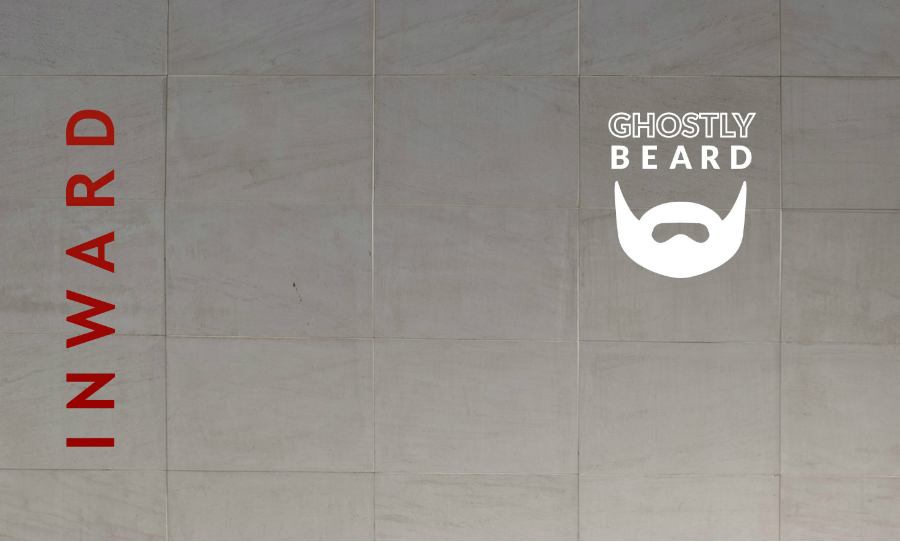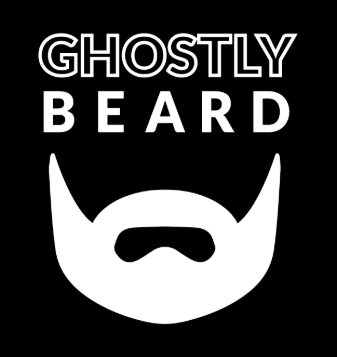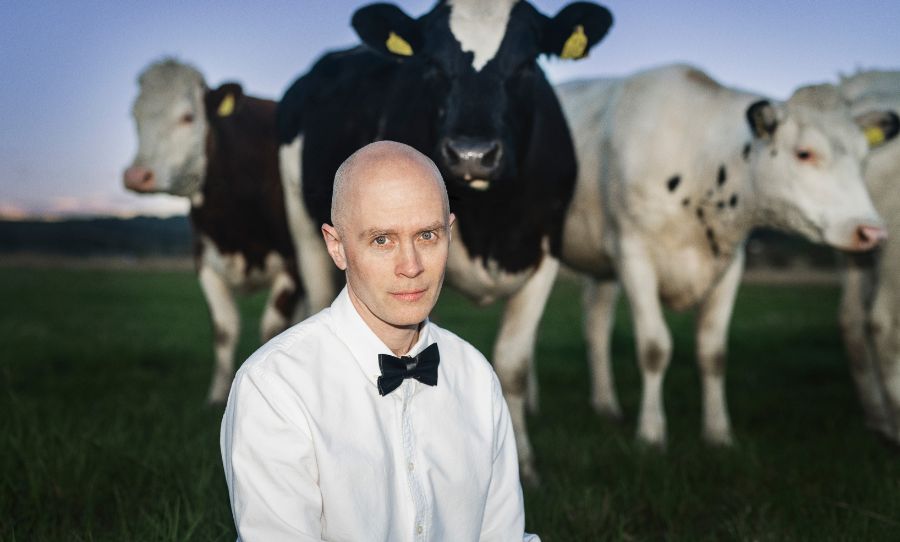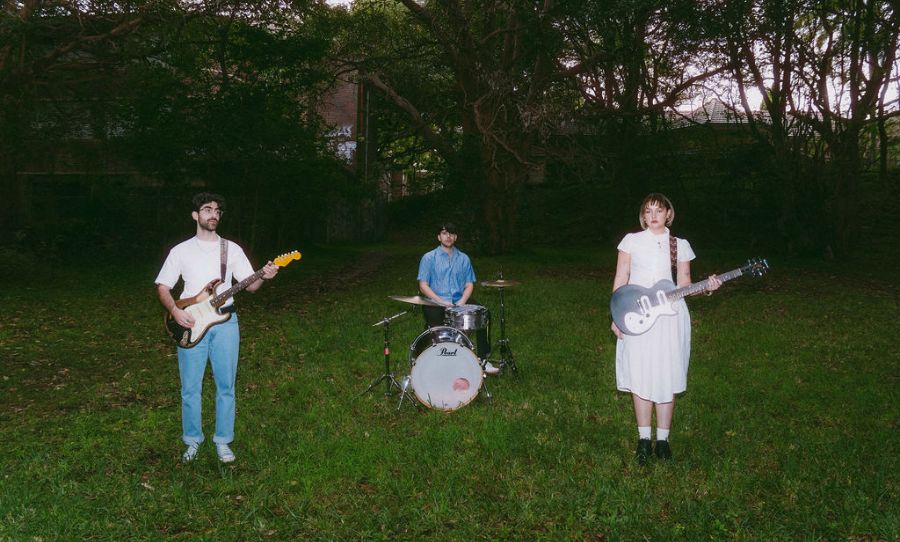By Ghostly Beard and Rods Bobavich
We two men embroiled in the music industry decided to interview each other on the future of music so that you can read two very different perspectives on current events.
This is what talk looks like for the up-and-coming in the music world.

The future is uncertain. We don’t agree on what this means because the issues are complex. Hopefully, this joint interview provides some insight to help inform your own perspective.
GHOSTLY BEARD: For the benefit of Happy Mag readers, could you tell briefly who you are, your background, and what you do?
RODS BOBAVICH: When people ask me where I’m from I usually respond, “Around the world and back again…” It’s not that I’m trying to be cutesy, I’ve just lived a lot of places around the world; Malaysia, Russia, Israel, India and now back in the US in Missouri. Most of my life I made my primary income with computer programming and later in business architecture. That’s probably why my perspective is always focused back on the business side of music. I’ve also been a busker and a studio musician at various stages in my life.
Today, I work full time as a music producer in the older sense of the word (i.e. not a beat composer like so many who call themselves producers…). I help artists polish song recordings and develop business strategies for their career. I am NOT one of those producers that fusses too much with a mix either. I’d much rather fuss with the emotion of the song and the release strategy – you get those two right and you’re set for the best chance at a hit!
RODS BOBAVICH: I guess I should ask the beard… What’s your background? You’re kind of a producer and at the same time faceless act like Sia. How did that come about?
GHOSTLY BEARD: The faceless act comes from a desire to react against our modern world’s obsession with images. I feel that this has nothing to do with music, and I wanted anyone who cares to listen to forget about my face… so last year, when I’ve decided that I wanted to promote my music again, I’ve build a website around images of shadows and a logo. The Ghostly Beard name itself came from the fact that I couldn’t use my real name – it was taken everywhere – and then I found this cool icon that I use as a logo, that is either a beard, or a ghost, or an alien or a mask or a UFO or whatever you want it to be. Just like music, really; everyone hears it, interprets it, feels it in his own way.

I was also always fascinated with studio work, and producing, so I learned about it along the years, enough to be able to produce my own music in a way that makes sense to me. I’ve been a student of music since the ’70s, have learned and played in many genres, and the music I do today is a blend of many influences, from rock to jazz, to blues to pop, and anything in between. But I was always more interested in studio work and the magic that can happen there.
GHOSTLY BEARD: It seems that you attach a broader sense to the word ‘producer’ which I find interesting. Could you please explain?
RODS BOBAVICH: I started thinking about this one day while mixing a song. My value as a producer isn’t really based on what I’m tweaking in the mix or really anything I do in the studio. It’s all tied to the market success of the project which I’m not even involved in… I was leaving the measure of my success in some else’s hands. That realisation changed my focus.
While the ultimate job of a producer is to aid the song in communicating as much as possible, the largest part of that communication is not the quality of the recording but rather the quality of the release strategy. This led me to look past polishing the song to the broader sense of communications as a whole. I’m convinced now that the next wave of great producers will focus on empowering and amplifying the message of the performer to meet the ears of an ever-expanding crowd.
I also think the Buggles were right, “Video killed the radio star”. Like it or not, we are not just producing music anymore…
RODS BOBAVICH: We first met in a passionate debate on Twitter about corporate involvement in the future of music. You’re quite the closet activist! What’s at stake for the future of music in your mind?
GHOSTLY BEARD: I’m not overly optimistic. I feel the music industry as a whole is in danger. The streaming corporations have such a hold on what is and what isn’t listened to nowadays, with playlists replacing albums, and brand playlists being pushed forward by algorithms, that anything out of the mainstream is in danger of being erased.
You could say this was always true, except that when the power was in labels’ hands, they at least had some interests in long term acts as a kind of insurance for the(ir) future.
Now the streaming corporations have an unprecedented power over music consumption, but at the same time don’t care much about discovering new acts. Music sales have always been driven by teenagers, but streaming platforms are amplifying their importance and very little indie artists, especially if they are innovative, can survive, because the revenues have reached record lows, with Spotify and the likes not redistributing their wealth fairly to authors and musicians.
I hear artists claiming these platforms as promotion opportunities, but I fear this is the good old ‘exposure bucks’ trick all over again, except there’s no more money coming from that exposure. No one buys music when it’s already free everywhere, and why would they? Venues are closing because ticket prices are skyrocketing, radios and music blogs are no longer seen as discovery platforms, being replaced by the ubiquitous playlists…
I think we’re in a transition time though, as this situation is unsustainable long term. So, it’s time for everyone who cares about music to think and stand up, and act to preserve original music by supporting unsigned artists, because they are the ones who are playing the music of tomorrow today.
GHOSTLY BEARD: What’s your view? Can you foresee something coming past the streaming era that will create a better environment for new music?
RODS BOBAVICH: I think what we are seeing is the death of one industry for the rise of an other. I agree with you on all the points you’ve just mentioned. There are no more gatekeepers. The album has died. The label oligarchy is over. Apple, Google, Spotify and Amazon are now in control of distribution and discovery. Streaming, like radio, is not earning much money for independent artists. But that’s probably not as big a deal as everyone thinks it is…
What is making money in music today is sync license for games, films, and TV, concerts in small venues, especially house concerts, also T-shirts and other merch still carries a pretty good profit. The fastest growing sector in music right now is donation supported artists. You can find them on platforms like Patreon, Kickstarter and Indiegogo. In their business models the sale of a song is not nearly as important as the creation of meaningful personal connections between artists and fans in a memorable or nostalgic way.
This new industry brings balance to the corrupt empires that have controlled music in the past. There are too many different music streaming services and social networks for any new oligarchy to form right now. New streaming apps and social media sites are popping up every day. Financial drivers are moving from greed to altruism – which I think we would agree is a very good thing. That is why I’m not too doom and gloom about the changes to our industry.
RODS BOBAVICH: I know we both have strong views on fair monetisation. But I’m curious what rates you think the market can bear before people decide that piracy is a better option again?
GHOSTLY BEARD: I don’t see a balance when the corrupt empires of old have in fact been replaced by shining new greedier Silicon Valley – “meet the new boss, same as the old boss” – but it’s funny you should talk about piracy because it is still thriving. There’s been a study about how much streaming has affected it, and it looks like it’s not the piracy killer it claims to be. In a way one could say that streaming has just legalised piracy, making it all the easier for people to get free music while artists are not compensated.
Now how much is fair? If we consider that streaming is replacing sales entirely, and applying some simple logic, it goes like this; if the average number of plays by someone buying a song on iTunes at a price of $1 (let’s forget the taxes and make it simple) is about 50 times (that’s a generous average), and on average the artist gets 50% of the $1 from that sale (again, a simplification), then the logical, common sense answer on the artist side would then be $0.5/50 = $0.01 per stream. Compare that to the current average rate over all major streaming platforms which is around $0.0016 (based on a pondered rate of all major platforms), and you can see that we’re far from a fair retribution.

I don’t believe that streaming platforms can afford to pay that much though (considering their own costs, and especially how much they sell their subscriptions, especially when they are promoting a freemium/ad-based model).
What’s more, the model of redistributing the wealth based on plays coming from a common pot is biased again towards teenager driven music. It’s not a reflection of what I, as a middle-aged listener, would be listening to. If I pay a subscription of $10 and listen only to one artist over the month, most of the money from my subscription is not going to go to that artist, but rather to the artists at the top of the food chain included in big sponsored playlists… There is a disconnect with what the artist would have earned if I had bought his music directly.
GHOSTLY BEARD: Now you say that the market place is changing in favour of open handed artists, with fundraising behind a new way to earn a living as an artist. Do you think that artists’ work should no longer be considered as having a value in itself?
RODS BOBAVICH: The market is flooded with new music everywhere. As a result, created content is not worth much right now. Music is blaring in supermarkets. It’s on the radio. It’s in yoga gyms and shopping malls. It’s on YouTube. It’s in video games. It’s in movies. It’s at major sports events and carnival rides. It’s on your friend’s cell phone. Everyday people tweet links where we can listen without paying. You may think it sucks that we have to adapt. But there is no going back.
The new music economy has already emerged. Twitch, YouTube, and Instagram stars are making a healthy living with this model. It’s an economy of giving instead of transactions. It’s only getting bigger!!! Even porn has embraced this new economic model. Like it or not, most music today is free. We are not going to get consumers to pay for music recordings again. The evidence is irrefutable; the ones who connects to their audience the most is the one making bank!
RODS BOBAVICH: But this leaves us with a big question; since consumer patterns have changed and music is now funded largely by corporate advertising who are our real fans of music? What does that mean for the next generation of music lovers…?
GHOSTLY BEARD: Patterns have changed indeed, and I believe some people, even in the younger generations, are starting to find that the music they are fed for free by the various media advertising machines is no longer feeding their soul. It doesn’t taste of anything, it lacks depth and meat, and after a while, browsing endlessly over thousands of songs on a streaming platform just because you can is no longer fun.
In the end, people will want a real connection with music again, and just like you talked about relationships between creators and fans, which can happen live, I believe some people are also craving a real product that they can hold in their hands, something they can get attached to, which is probably why vinyl is seeing an unlikely boom right now. It makes me believe people will find ways to treasure what artists are producing, might not be albums, who knows?
I just think that future generations will need a taste of that emotional connection we felt with albums not so long ago, when they were scarce, and we treasured them. There is such a thing as an overdose of music and perhaps going back to the roots of what music is all about is what everyone needs… I suppose we agree on this!
RODS BOBAVICH: Indeed, we do. Thanks for setting up this double interview and thanks to the Happy Mag readers for tagging along…
GHOSTLY BEARD: Where can people find you on the internet?
RODS BOBAVICH: Twitter. All the music peeps hang there… and where do you want people to connect with you?
GHOSTLY BEARD: They can find me on my website or on Twitter.
Listen to Ghostly Beard’s new album Inward here.


